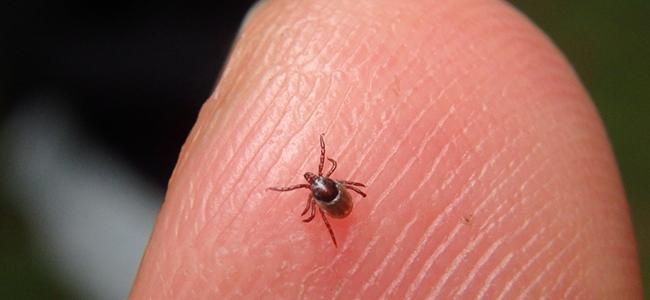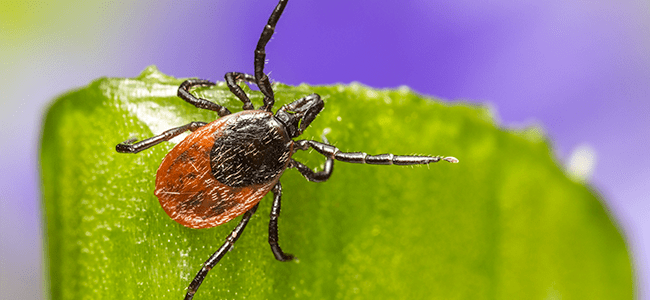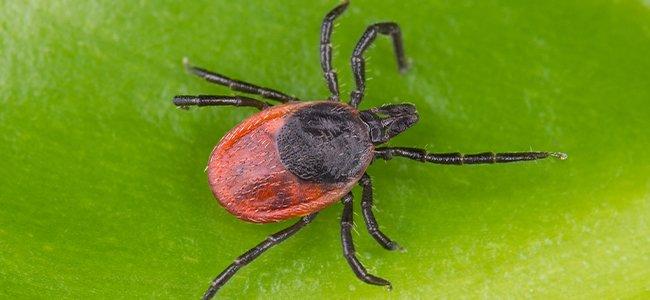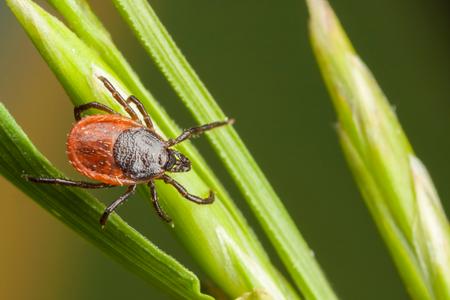
The Best Tick Control For Maryland Properties
10/01/2021
In Maryland, we have some of the most enjoyable weather (for most of the year) for playing out in the yard and enjoying time with our pets. Unfortu...
READ MORE >

Ticks are relatively small ectoparasites that feed on the blood of humans and animals. In northern Virginia there are 4 main types of ticks that are common to the area: the American dog tick, the Brown dog tick, the Deer tick, and the Lone star tick. Although there no tick is less loathed than the other, the Deer tick is a known vector of Lyme disease in Virginia and suitable consideration should be in place to protect your pets and family from its potentially infectious bite. We're here to tell you more about your Virginia tick control options.
1. Controlling ticks on pets is your first defense against preventing an invasion of these thirsty blood suckers from entering your home or business. Ask your veterinarian to recommend an approved flea and tick solution such as FrontlinePlus or K-9 Advantix. Pets in Virginia, and all along the eastern seaboard, should have an annual Lyme disease screening in addition to any routine flea and tick treatments. Treatments should be administered according to the product labeling instructions between the months of March through November.
2. The second defense against ticks begins with personal protection. Nonchemical protection such as long-sleeved shirts, pants, socks, and a hat will offer some safety against ticks from gaining easy access to your skin during outdoor adventures. Increase your level of security by using premium insect repellants containing a minimum of 15% DEET. DEET is an excellent repellent for ticks as well as other insect pests like mosquitoes, mites and biting midges. When applied and reapplied correctly, mosquito and tick sprays can offer several hours of protection.
3. During the hottest summer months of June, July, and August, ticks are at their worst in both urban and rural environments. Reduce tick populations around your property by maintaining lawns and overgrown foliage areas. When hiking or camping, stick to well maintained trails where the vegetation is likely to be nonexistent or worn. When taking your adventures off-trail, remember to wear appropriate clothing and reapply a mosquito and tick repellant spray every 4-6 hours.
When the unfortunate discovery is made that a tick has latched onto your skin or pet, grab the following items and read the Center for Disease Control's tips on how to remove a tick safely and effectively.
To learn more about backyard tick control for your Northern Virginia home, contact the experts at American Pest.
Learn More About Our Virginia Tick Control Plan

10/01/2021
In Maryland, we have some of the most enjoyable weather (for most of the year) for playing out in the yard and enjoying time with our pets. Unfortu...
READ MORE >

09/03/2021
Healthcare facilities, such as hospitals, nursing homes, rehabilitation centers, and emergent care centers must maintain a strict level of sani...
READ MORE >

08/23/2021
Ticks are considered to be some of the most dangerous arachnids around. Not only are they famous for biting people, pets, and wildlife creatures, b...
READ MORE >

07/15/2021
Each year, tick populations are on the rise. This is due to a multitude of factors, including climate change and increased tick habitat. Frederick ...
READ MORE >

Protect your home and family from nuisance and potentially damaging pests with a Preferred Care home pest control plan. Starting at $49/month

Don't let the bed bugs bite a second longer. Contact American Pest for the most comprehensive bed bug control in the industry. Learn More

Our certified rodent control pros will put an end to your frustration by getting rid of rats and mice inside your home. Learn More

Say goodbye to wood-destroying termites in your home when you contact American Pest for expert termite control. Learn More

Trust American Pest to deliver professional backyard tick control services that are guaranteed to get results. Learn More

Don't spend the warm-weather season indoors, find out how American Pest's professional treatments get rid of mosquitoes. Learn More
Fill out the form and recieve feedback in less than 5 minutes. For immediate service please call.